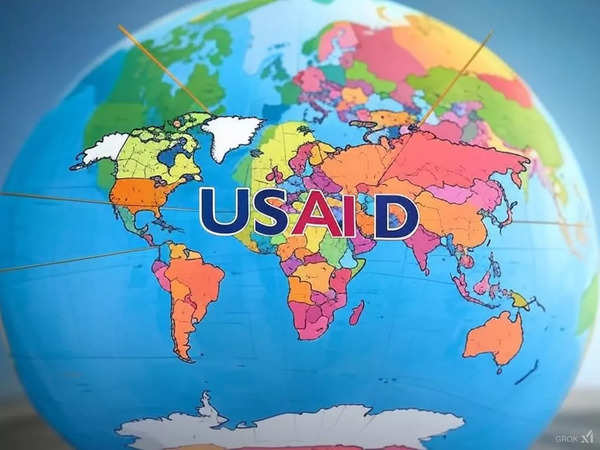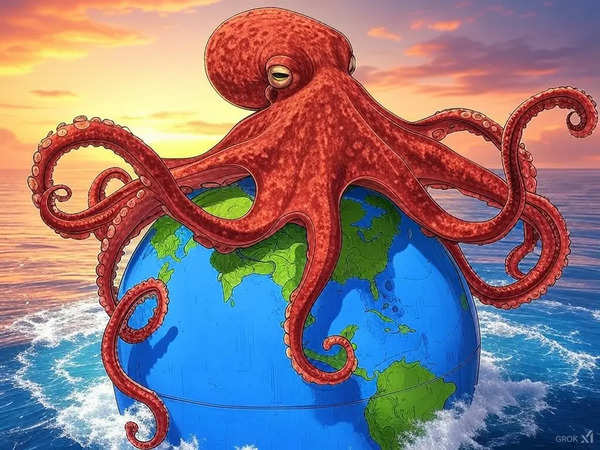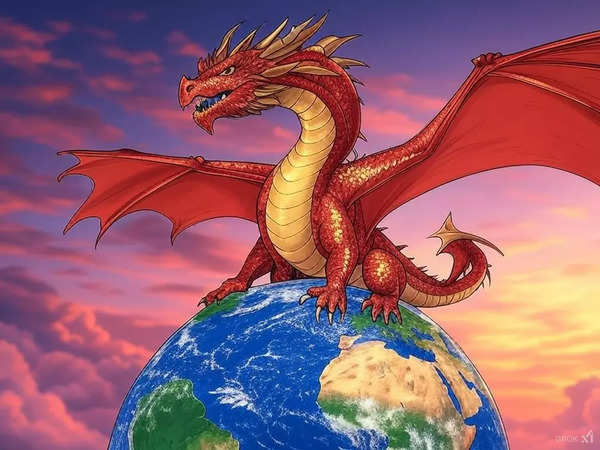In Frederick Forsyth’s Avenger, a veteran British spymaster explains to the American strategist Paul Devereux: “The hatred of your country is not because it attacks theirs; it is because it keeps theirs safe. Never seek popularity. You can have supremacy or be loved, but never both. What is felt toward you is ten percent genuine disagreement and ninety percent envy. Never forget two things: no man can ever forgive his protector, and there is no loathing more intense than that felt toward a benefactor.”
This observation rings true when considering America’s global role—not just as a superpower but as a benefactor. Ask many who’ve been on the receiving end of US largesse, and they’ll argue that America’s “gifts” often come with strings attached. One of the most recognizable symbols of this aid is the United States Agency for International Development, or USAID.
USAID is an independent agency of the US government, responsible for administering civilian foreign aid and development assistance. Established in 1961 by President John F. Kennedy, its mission has been to promote economic development, support disaster relief, and foster democratic governance around the world. Over the decades, USAID has managed substantial budgets to support its initiatives. In fiscal year 2023 alone, it oversaw more than $40 billion in appropriations—accounting for over a third of the funds allocated to the Department of State, Foreign Operations, and related programs.
But the era of American largesse (or manipulation) may be coming to an abrupt end.
In January 2025, President Donald Trump ordered a near-total freeze on foreign aid. Shortly after, on February 3, 2025, Elon Musk announced that he and Trump were in the process of permanently shutting down USAID. Employees told CNN they had been asked not to come in.
An email said: “At the direction of Agency leadership, the USAID headquarters at the Ronald Reagan building in Washington, D.C. will be closed to Agency personnel on Monday, February 3, 2025. Agency personnel normally assigned to work at USAID headquarters will work remotely tomorrow, with the exception of personnel with essential on-site and building maintenance functions individually contacted by senior leadership.”
DOGE VS USAID
It all started with a flurry of tweets. Musk didn’t mince words when he labeled USAID a “criminal organization”—a statement that would be laughable if it weren’t backed by the full-throated support of President Trump himself, who chimed in by calling the agency “run by radical lunatics.” The bromance between Musk and Trump has gone from casual flirting to full-blown government demolition derby. Trump’s given Musk unprecedented influence over federal agencies through the Department of Government Efficiency (DOGE), an Orwellian-sounding entity that seems less about efficiency and more about evisceration.
Musk’s rationale is simple. He views USAID as a bloated relic of the Cold War, an expensive tool for foreign meddling that masquerades as humanitarian assistance. To Musk, it’s not about saving lives; it’s about saving taxpayer dollars, and to limit the US from endless manipulation. It’s a view shared by certain technocrats in Trump’s inner circles: people like David Sacks and Marc Andreessen who feel America’s desire to meddle in the world’s affairs, to act like a global policeman ends up hampering the country.
Team America

Founded in 1961 by President John F. Kennedy, USAID was supposed to be America’s way of spreading democracy, freedom, and capitalism—through food, medicine, and a sprinkle of good old-fashioned propaganda. But while its mission statement reads like a Miss Universe contestant’s speech about world peace, USAID has long been accused of being less about aid and more about influence.
Critics argue that USAID is the velvet glove covering the iron fist of US foreign policy. It funds NGOs, civil society organizations, and media outlets that align with American interests. In countries where military intervention would be too messy or too obvious, USAID steps in to “promote democracy,” which often translates to “support governments we like and undermine those we don’t.” From funding anti-Castro dissidents in Cuba to allegedly backing opposition groups in Russia and meddling in Ukraine’s political landscape, USAID has a history of blurring the lines between charity and covert ops.
What Insiders Claim
According to Mike Benz, a former State Department official and current Executive Director of the Foundation for Freedom Online, USAID isn’t just another aid agency—it’s the linchpin of America’s empire. “This describes our trifecta of foreign policy establishments,” Benz explains, referencing the State Department, the Department of Defense (Pentagon), and the Intelligence Community. These entities, he argues, manage America’s global empire, overseeing vassal states and foreign markets.
The problem? They were all tripping over each other—until USAID came along.
Benz claims that USAID was created to streamline the chaos, acting as the “central hub” coordinating US foreign influence. “When people hear the name USAID, they focus on aid. But it’s not about aid. It’s about capacity building—developing institutions in foreign countries to align with U.S. interests,” he says. According to Benz, USAID serves as the connective tissue between America’s military, diplomatic, and intelligence efforts abroad, channeling billions of dollars into foreign countries to influence their political and economic landscapes. “It’s not a charity. It’s an empire management tool.”
What Opponents Say About USAID Being Destroyed
Of course, not everyone’s cheering on Musk and Trump’s bureaucratic bonfire. Critics from both sides of the aisle argue that gutting USAID would be a geopolitical blunder of epic proportions. Democratic Senator Chris Murphy called it “the total destruction of an agency that has saved countless lives and advanced American interests for decades.” Alexandria Ocasio-Cortez took it a step further, warning, “Having an unelected billionaire, with his own foreign debts and motives, raiding US classified information is a grave threat to national security.”
Even some Republicans are squirming. For all the MAGA bravado, USAID has been a critical tool in stabilizing regions where instability breeds terrorism. No USAID means no soft power, and no soft power means more boots on the ground when things go south. It’s a trade-off that even the most hawkish conservatives are hesitant to make.
How USAID Gave America Influence Around the World

USAID has been America’s silent partner in world domination—less dramatic than military interventions but often more effective. It’s the sugar that helps the imperial medicine go down. Through development programs, disaster relief, and economic aid, USAID has built alliances, opened markets, and kept fragile governments from collapsing into chaos.
Consider Afghanistan. Post-9/11, USAID wasn’t just handing out food; it was building schools, funding local media, and propping up a government friendly to US interests. In Ukraine, USAID-supported NGOs helped shape the political landscape after the 2014 revolution. Even in places like Africa, where aid is framed as purely humanitarian, the subtext is clear: win hearts and minds, keep China at bay.
The Big Picture: Advantage China?

Which brings us to the elephant—or rather, the dragon—in the room: China. While Musk and Trump are busy dismantling USAID, Beijing is quietly expanding its Belt and Road Initiative, signing infrastructure deals, and handing out loans with zero lectures about democracy or human rights. Where USAID withdraws, China steps in, offering an alternative model of development without the messy strings of political reform.
The geopolitical implications are staggering. Without USAID, America loses its soft power advantage, ceding influence in Africa, Asia, and Latin America to a country that’s playing the long game. China doesn’t need to invade; it just needs to invest. And while Musk dreams of Mars and Trump dreams of expansion, Xi Jinping is busy reshaping the global order one port, one road, and one “no-strings-attached” loan at a time.
The crusade against USAID isn’t just about cutting government fat. It’s about reshaping America’s role in the world. Musk and Trump see an empire in decline and believe the solution is to pull back, cut costs, and let the chips fall where they may. But in the zero-sum game of global politics, every vacuum America leaves will be filled—by China, Russia, or anyone else willing to play the long game. In the end, the question isn’t whether USAID is perfect (it’s not). The question is whether America can afford to abandon the very tools that made it a superpower without firing a shot. And if Musk and Trump have their way, we’re about to find out.
